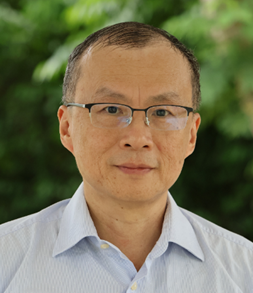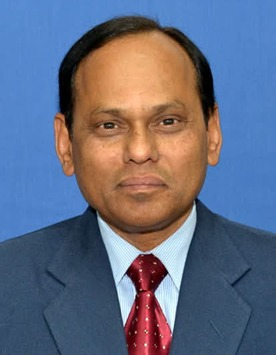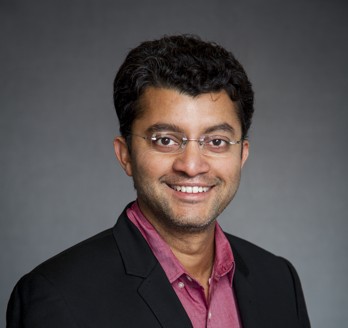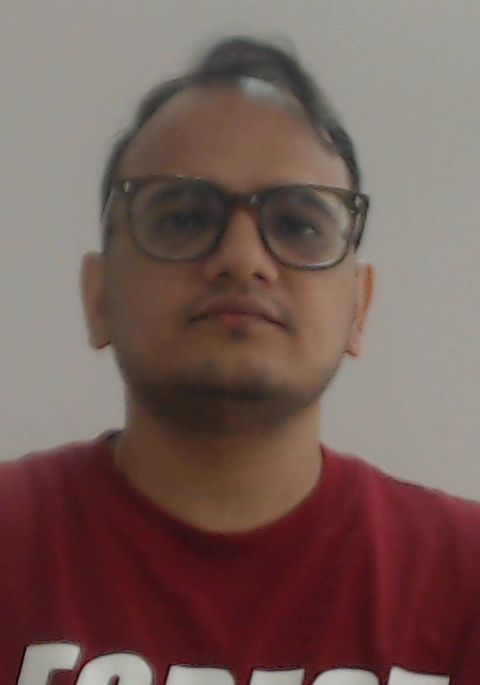| Keynote and Invited Talks |
 Prof. Lipo Wang Prof. Lipo Wang
Electrical and Electronic Engineering,
Nanyang Technological University, Singapore
Title of the Talk: TBA
Prof. Lipo Wang is with the School of Electrical and Electronic Engineering, Nanyang Technological University, Singapore. His research focuses on artificial intelligence/machine learning for image and data processing. He has published over 400 papers, holds 2 patents, and has received more than 16,000 citations on Google Scholar. He has delivered over 50 keynote talks worldwide.
He is Editor-in-Chief of the International Journal of Computational Intelligence and Applications, Senior Editor of IEEE Transactions on Systems, Man, and Cybernetics: Systems, and Associate Editor of IEEE Transactions on Neural Networks and Learning Systems. He has also served as Associate Editor or Editorial Board Member of more than 30 international journals, including two other IEEE Transactions, and as Guest Editor for over 10 special issues.
Prof. Wang was a member of the Board of Governors of the International Neural Network Society, the IEEE Computational Intelligence Society (CIS), and the IEEE Biometrics Council. He served as CIS Vice President for Technical Activities and as Chair of the Education Committee of the IEEE Engineering in Medicine and Biology Society (EMBS). He was President of the Asia-Pacific Neural Network Assembly (APNNA, now APNNS) and received the APNNA Excellent Service Award. He was the founding Chair of both the EMBS Singapore Chapter and the CIS Singapore Chapter.
 Dr. Swagatam Das Dr. Swagatam Das
Professor - Electronics and Communication Sciences Unit (ECSU)
ISI Kolkata, India
Title of the Talk: Multi-modal and Non-stationary Optimization with Differential Evolution: Some Recent Approaches and Applications
Swagatam Das earned his B.E. in Electronics and Telecommunications Engineering, M.E. with a specialization in Control Engineering, and Ph.D.(Engineering) degrees from Jadavpur University, India, in the years 2003, 2005, and 2009, respectively. He is currently a professor at the Electronics and Communication Sciences Unit (ECSU) of the Indian Statistical Institute, Kolkata, India. He is also serving as the Professor-in-Charge of the Computer and Communication Sciences Division (CCSD) of his Institute for the term 2024 - 26. He previously held the position of Professor and Deputy Director at the Institute for Advancing Intelligence (IAI), TCG CREST, Kolkata, India, from April 01, 2023, to March 31, 2024. His research interests encompass deep learning and non-convex optimization, and he has published over 400 research articles in peer-reviewed journals and international conferences. Dr. Das is the founding Co-Editor-in-Chief of Swarm and Evolutionary Computation, an international journal by Elsevier. He has served or is currently serving as an Associate Editor for several prominent journals, including the IEEE Transactions on Neural Networks and Learning Systems, IEEE Transactions on Cybernetics, IEEE Transactions on Evolutionary Computation, Pattern Recognition (Elsevier), Neurocomputing (Elsevier), Information Sciences (Elsevier), IEEE Trans. on Systems, Man, and Cybernetics: Systems, among others. He is a member of the editorial board of Information Fusion (Elsevier), Progress in Artificial Intelligence (Springer), Applied Soft Computing (Elsevier), Engineering Applications of Artificial Intelligence (Elsevier), and so on. Dr. Das has received over 35,500 Google Scholar citations and an H-index of 90 to date. He has actively participated in the program committees and organizing committees of renowned international conferences such as NeurIPS, AAAI, AISTATS, ACM Multimedia, BMVC, IEEE WCCI, GECCO, and more. He currently serves as an ACM Distinguished Speaker. He received the 2012 Young Engineer Award from the Indian National Academy of Engineering (INAE) and the 2015 Thomson Reuters Research Excellence India Citation Award for being the highest-cited researcher in Engineering and Computer Science in India between 2010 and 2014.
 Mr. Aninda Bose Mr. Aninda Bose
Executive Editor
Research Publishing – Books
Interdisciplinary Applied Sciences
Springer Nature Group
The Campus, 4 Crinan Street, London N1 9XW
Title of the Talk: TBA
Mr. Aninda Bose is presently working as Executive Editor with Springer Nature. Mr. Bose is part of the Global Acquisition Team at Springer Nature and responsible for acquisition of scientific content across the globe. He is responsible for acquisition of content in Interdisciplinary Applied Sciences. He has more than 26 years of industrial experience in marketing and different fields of publishing. Mr. Bose has completed Masters in Organic Chemistry from Delhi University and Masters in Marketing Research from Symbiosis Institute of Management Studies, Pune. Mr. Bose has delivered more than 160 invited talks on Scientific Writing and Publishing Ethics in reputed Universities, International Conferences and Author Workshops. He has published books for secondary level in Chemistry and is a member of American Chemical Society, USA.
 Prof. S. P. S. Kushwaha Prof. S. P. S. Kushwaha
PhD, FNASc, FAvH, FNIE, FISEB, FISRS
Former Group Director, Dean (Academics), and Head, Forestry and Ecology
Department of Indian Institute of Remote Sensing, ISRO
Title of the Talk: TBA
Prof. S.P.S. Kushwaha is a Former Group Director, Dean (Academics), and Head, Forestry and Ecology Department of Indian Institute of Remote Sensing, ISRO is the one who developed techniques to monitor India’s forests using satellite imagery as early as 1982. The technology is being used by Forest Survey of India for regular forest monitoring since then. He also developed methods for sustainable watershed level development planning, which is popular among Indian farmers. He advanced the research on wildlife habitat modeling and evaluated habitats of several animal species. He has significantly contributed in development of indigenous technology for nationwide biodiversity characterization. This ESRI GIS Innovation Award winning research helped in nationwide biodiversity characterization. He has co-authored 3 books, 17 book chapters and published 112 papers in peer-reviewed Indian and foreign journals. He has edited special issues of Tropical Ecology and Biodiversity and Conservation journals and is Assoc. Editor of Tropical Ecology and Journal of Indian Society of Remote Sensing. Besides, Prof. Kushwaha has provided effective leadership in carbon flux modeling using eddy covariance techniques and assessed the carbon sequestration by forests and forest plantations. He has unique distinction of installing and running three C-flux monitoring eddy towers at Betul, Doon Valley and Haldwani for the first time in India. He is the only ecologist in the country who has effectively used space technology for natural resources assessment, monitoring and conservation. In recognition of his research work, Prof. Kushwaha was awarded prestigious Alexander von Humboldt Fellowship of Germany in 1991, elected as Fellow of National Academy of Sciences, India in 2014 and Fellow of Indian Society of Remote Sensing in 2020. His contribution in forestry, ecology and remote sensing disciplines is outstanding.
 Dr. Rajeev Kanth Dr. Rajeev Kanth
Principal Lecturer (Yliopettaja- in Finnish)
Savonia University of Applied Sciences, Finland
Title of the Talk: TBA
Dr. Rajeev Kanth received a Doctor of Science (D.Sc.) in Information and Communication Technology from the University of Turku, Finland, in 2013. He has been working as a Principal Lecturer (Yliopettaja- in Finnish) at the Savonia University of Applied Sciences, Finland, where he focuses on teaching and research on the Internet of Things (IoT). He has been an Adjunct Professor at the Department of Computing, University of Turku, Finland, and a Visiting Professor at Hebei University of Environmental Engineering, China. He is currently a senior member of the IEEE. Previously, he worked at the Indian Space Research Organization (ISRO), Ahmedabad, India, and the Royal Institute of Technology (KTH), Stockholm, Sweden, where he was a researcher and a senior research scientist, respectively. He has over 25 years of experience working in academic and research institutions. His current research interests include the Internet of Things, big-data analytics, artificial intelligence, and wireless cloud and edge computing. He has published more than 95 scientific articles in peer-reviewed conference proceedings and refereed computer science and communication technology journals. Some of the recent and ongoing research and development projects are UCNDRONE (funded by the Finnish Ministry of Education), VLEFACT (EU Erasmus Plus-funded project), and AIQUSEC (Business Finland).
 Dr. Anindya Ghose Dr. Anindya Ghose
Heinz Riehl Professor of Business
Leonard N. Stern School of Business
Kaufman Management Center, 44 West Fourth Street, 8-67, New York, NY 10012
Title of the Talk: TBA
Dr. Anindya Ghose is the Heinz Riehl Chair Professor of Technology and Marketing at New York University's Leonard N. Stern School of Business where he holds a joint appointment in the TOPS and Marketing departments. He is the author of TAP: Unlocking The Mobile Economy which is a double winner in the 2018 Axiom Business Book Awards and has been translated into five languages (Korean, Mandarin, Vietnamese, Japanese and Taiwanese). His new book is titled THRIVE: Maximizing Well-Being in the Age of AI . His rise from assistant to full professor in 8.5 years at NYU Stern is widely regarded as one of the fastest in the history of several disciplines in business schools globally. He is the Director of the Masters of Business Analytics and AI Program at NYU Stern. He is a Leonard Stern Faculty Scholar with an MBA scholarship (the Ghose Scholarship) named after him. He has been a Visiting Professor at the Wharton School of Business. In 2014, he was named by Poets & Quants as one of the Top 40 Professors Under 40 Worldwide and by Analytics Week as one the "Top 200 Thought Leaders in Big Data and Business Analytics".
 Dr Sandeep Singh Sengar Dr Sandeep Singh Sengar
Senior Lecturer in Computer Science
Cardiff School of Technologies
University in Cardiff, Wales, UK
Title of the Talk: TBA
Dr. Sandeep Singh Sengar is a Lecturer in Computer Science at Cardiff Metropolitan University, United Kingdom. Before joining this position, he worked as a Postdoctoral Research Fellow at the Machine Learning Section of Computer Science Department, University of Copenhagen, Denmark. He holds a Ph.D. degree in Computer Science and Engineering from Indian Institute of Technology (ISM), Dhanbad, India and an M. Tech. degree in Information Security from Motilal Nehru National Institute of Technology, Allahabad, India. Dr. Sengar’s current research interests include Medical Image Segmentation, Motion Segmentation, Visual Object Tracking, Object Recognition, and Video Compression. His broader research interests include Machine/Deep Learning, Computer Vision, Image/Video Processing and its applications. He has published several research articles in reputed international journals and conferences in the field of Computer Vision and Image Processing. He is a Reviewer of several reputed International Transactions, Journals, and conferences including IEEE Transactions on Systems, Man and Cybernetics: Systems, Pattern Recognition, Neural Computing and Applications, Neurocomputing. He has also served as a Technical Program Committee member in many reputed International Conferences. He has organized several special sessions and given keynote presentations at International Conferences. In addition to these, he has also given many expert talks in reputed organizations. He always believes in collaborative opportunities.
 Dr. Deepak Kumar Jain Dr. Deepak Kumar Jain
Associate Professor
Dalian University of Technology
Ganjingzi, Dalian, Liaoning, China
Title of the Talk: TBA
Dr. Deepak Kumar Jain leads a research group that applies Artificial Intelligence (AI), Deep Learning, and Computer Vision to face and facial expression analysis. Our group creates innovative and robust AI models that can detect and prevent deepfakes, and recognize subtle and complex micro expressions. His work has been published in prestigious journals such as Information Fusion, Neurocomputing, and Expert Systems with Applications. He holds a Postdoctoral degree in Computer Vision from ARMTEC Tecnologia em Robótica, a Ph.D. in Pattern Recognition and Intelligent System from the University of Chinese Academy of Sciences, a Master's degree in Image Processing and Computer Vision from Jaypee University of Engineering and Technology, and a Bachelor's degree in Electronics and Instrumentation from Rajiv Gandhi Prodyogiki Vishwavidyalaya. He have developed a novel Iris recognition algorithm for the Indian Aadhar Card system, and explored new methods and applications of Deep Reinforcement Learning. He is a passionate about advancing AI for the research community and the society at large, and he embraces challenges and collaborations with colleagues worldwide. He also enjoy teaching and mentoring students at both bachelor's and master's levels, and designing the curriculum for the Machine Vision course at DUT. He is always eager to learn new skills and technologies, and to apply them to real-world problems.
 Dr. Drishti Yadav Dr. Drishti Yadav
Research Associate, University of Luxembourg
Title of the Talk: TBA
Dr. Drishti Yadav is a Research Associate at the Interdisciplinary Centre for Security, Reliability and Trust (SnT), University of Luxembourg. She received her B.E. (Bachelor of Engineering) degree in Electrical and Electronics Engineering from Chhattisgarh Swami Vivekananda Technical University, Bhilai, India in 2017, and her M.Tech (Master of Technology) degree in Control and Instrumentation Engineering from Dr B. R. Ambedkar National Institute of Technology Jalandhar, India in 2020. She completed her PhD in Computer Science at TU Wien, Vienna, Austria in November 2024, under the supervision of Prof Ezio Bartocci.Dr Yadav works with the Software Verification and Validation (SVV) group. Her research primarily revolves around fault-based testing and verification of safety-critical cyber-physical systems. She is also interested in control systems engineering and optimisation in general, with a soft spot for metaheuristics. She undertook a three-month research visit from February to April 2024 at the Department of Informatics, Systems, and Communication (DISCo), University of Milano-Bicocca, Italy, under the supervision of Prof Leonardo Mariani. She was awarded the “KUWI Grant” of TU Wien in 2024, for diploma and PhD theses and attending specialist courses abroad as part of her research. In 2023, she was recognised as a “TUW Under 30” honouree, listed among TU Wien’s 30 most exciting people below 30 years with exceptional achievements. She worked as a University Assistant in the Cyber-Physical Systems (CPS) research group at the Faculty of Informatics, TU Wien, from October 2020 to October 2024. She joined the University of Luxembourg in March 2025.
|